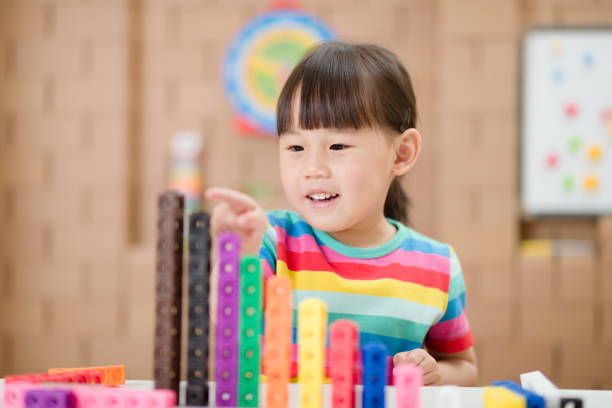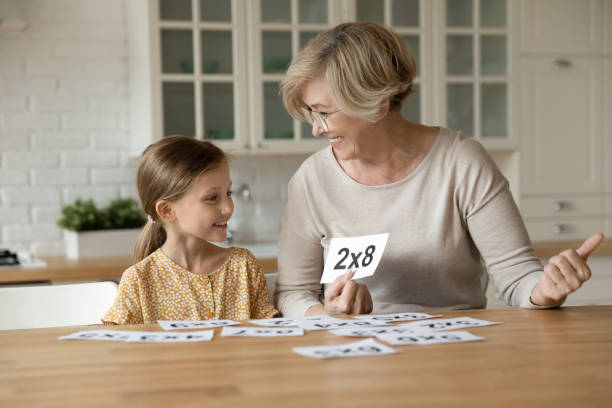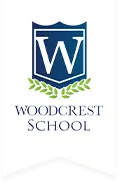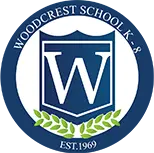From interactive apps and games to curriculum insights and teaching methodologies, discover resources that support students in developing strong mathematical foundations and nurturing a lifelong love for learning.
Learning Activities
Simple activities such as counting objects around the house or during daily routines like setting the table can reinforce basic numeracy skills in kindergartners. Sorting and classifying items by color, shape, or size encourages critical thinking and categorization abilities. Parents can also use everyday situations to introduce concepts like addition and subtraction, such as counting toys during playtime or sharing snacks equally among family members. Storybooks with mathematical themes or puzzles that involve matching shapes and numbers provide enjoyable ways to enhance problem-solving skills.

Parents of first graders can introduce fun and interactive games like board games that involve counting spaces or dice games that practice addition and subtraction skills. Everyday activities such as measuring ingredients while cooking or calculating change during shopping trips help children apply math to real-life situations. Working together on math-related crafts encourages problem-solving and spatial reasoning abilities. Reading math-themed storybooks and discussing the mathematical concepts within them promotes literacy and numeracy simultaneously.

By making math engaging and relevant to daily life, parents help their second graders develop confidence and proficiency in mathematics. Cooking together provides opportunities for measurement and fractions, as children follow recipes and measure ingredients. Parents can also encourage their child to create and solve math story problems using everyday scenarios, promoting critical thinking and problem-solving skills. For example, parents can ask questions like “How many fruit snacks are left if I eat 5 of these 25?”

For parents of third graders, encouraging children to practice multiplication and division through games like multiplication bingo or math fact races can make learning fun and interactive. In baking and cooking, offer third graders opportunities to double and half recipes to further enforce the importance of multiplication and division. Parents can also introduce their child to math apps and online games that offer engaging exercises to reinforce skills in geometry, fractions, and problem-solving. Discussing math concepts in everyday situations such as finances and budgeting, further helps children see the relevance of math in their daily lives.

Parents of fourth graders can introduce hands-on activities to provide practical applications of math concepts. For example, calculating distances during family outings can make math relevant and fun. Exploring math brainteasers together encourages problem-solving abilities and critical thinking. Measuring items around the house and using those measurements to calculate perimeters can reinforce how to apply math concepts to the real world. Additionally, fourth graders can benefit from helping with construction projects under direct supervision, where measurements and understanding angles are crucial.

Exploring real-world math applications with fifth graders, such as calculating tips at restaurants or measuring ingredients for recipes, helps children understand the practical relevance of math. When shopping, encourage your fifth grader to calculate the sales tax on each item and add up the total cost of the trip to strengthen their budgeting skills. Working on math puzzles, brainteasers, and Sudoku together promotes critical thinking and logical reasoning abilities. Additionally, collecting data, such as the number of each license plate found on cars during a road trip and creating a graph or chart to showcase that data, further reinforces learning outside the classroom.

For parents of sixth graders, introduce stimulating activities such as discovering the surface area of 3-dimensional objects around the house. For an engaging competition, create a battleship game using printouts of the four quadrants and take turns guessing and plotting each other’s battleship. As sixth graders learn the concept of pi, encourage them to memorize as many digits of pi as possible. For practical real-world applications, have your sixth grader calculate the price of an item that is discounted by a certain percentage. Another fun game is to have them choose five cards from a pool of cards numbered 0 to 9, then come up with as many calculations as possible using those numbers (for example, if your child chooses the numbers 8, 2, 5, 4, and 0, they can write a calculation like 458 multiplied by 20). Then, have them go through and solve each calculation.

Parents can encourage their seventh grader to explore geometry through activities like drawing and measuring angles or constructing geometric shapes using household items, which can enhance spatial reasoning skills. Involving your seventh grader in planning family trips and ensuring every activity and expense fits within a fixed budget can demonstrate how math applies in fun scenarios and everyday activities. If your child is interested in starting a business, show them how to apply math concepts to achieve success. Encourage your child to pursue interests in subjects or careers that use math principles, such as technology, engineering, and programming. Another engaging activity is exploring probability and statistics while playing board games, such as calculating the probability of rolling doubles or finding the chances of winning a game of Connect 4.

Exploring practical applications of math through activities such as analyzing sports statistics helps eighth graders see math’s relevance in everyday life. Working on algebraic equations, geometry proofs, or advanced arithmetic exercises can strengthen their mathematical reasoning abilities. Additionally, discussing mathematical concepts encountered in reading materials or news articles can broaden their understanding and appreciation of math’s role in the world. Encourage eighth graders to participate in math competitions to motivate them to enhance their problem-solving abilities and teamwork skills, preparing for high school and college.

Online Videos, Games, & Printables
PBS Learning Media offers a comprehensive array of online math resources tailored for grades K-8, designed to support both educators and students. These resources include engaging videos and fun handouts, making learning engaging and accessible. With topics covering foundational numeracy skills to advanced concepts, PBS Learning Media ensures that learners at every grade level can find valuable tools to enhance their mathematical understanding.
Khan Academy offers a robust suite of online math resources for grades K-8, providing comprehensive coverage of fundamental math concepts through interactive lessons, practice exercises, and instructional videos. Their platform supports personalized learning, allowing students to progress at their own pace and receive immediate feedback on their understanding. With a focus on building foundational skills in arithmetic, algebra, geometry, and beyond, Khan Academy’s resources empower students to develop a strong mathematical proficiency from early elementary through middle school grades.
Coolmath4Kids offers a diverse range of engaging online math games tailored for grades K-8, designed to make learning math fun and accessible. From interactive puzzles that reinforce basic arithmetic skills to challenging logic games that promote critical thinking, their platform provides educational entertainment that aligns with curriculum standards. With a user-friendly interface and a variety of game genres, Coolmath4Kids encourages students to explore mathematical concepts in an enjoyable and motivating environment.
Prodigygame.com offers a range of engaging math games designed for students in grades 1 to 8. These games blend educational content with interactive gameplay, providing a fun and effective way for students to practice and improve their math skills. With a curriculum-aligned approach and adaptive learning technology, Prodigy’s games support personalized learning experiences that cater to each student’s proficiency level.
Math Playground is a popular online resource offering a variety of math games, puzzles, and activities designed for students in grades K-8. Their platform features interactive games that cover a wide range of mathematical concepts, from basic arithmetic to more advanced topics like algebra and geometry. Math Playground’s educational games are designed to engage students in learning while reinforcing core math skills through hands-on, engaging activities.
Funbrain is an excellent resource for K-8 grade kids seeking math games, offering a wide array of educational and entertaining activities. Its convenient filter feature allows users to easily find games appropriate for their grade level, ensuring that children can focus on concepts aligned with their current curriculum. From basic arithmetic challenges to more complex problem-solving exercises, Funbrain’s curated selection of math games engages young learners while supporting their academic development in a fun and accessible way.
Math is Fun serves as a comprehensive online math resource catering to students from kindergarten through eighth grade. It provides a wide range of interactive games, puzzles, worksheets, and activities that cover essential mathematical concepts in a clear and engaging manner. With topics spanning from basic arithmetic to geometry, algebra, and beyond, Math is Fun offers accessible content that supports both classroom learning and independent study. Its user-friendly interface and interactive features make it easy for students to explore different math topics at their own pace, fostering a deeper understanding and appreciation for mathematics from an early age.
Hooda Math is a versatile online platform offering a variety of math games tailored for students in grades K-8. With a focus on interactive learning through engaging games, Hooda Math covers a wide range of mathematical topics, from basic arithmetic to more advanced concepts like algebra and geometry. The platform’s games are designed to challenge and motivate students while reinforcing core math skills in a fun and accessible way. Hooda Math’s educational approach encourages exploration and problem-solving, making it a valuable resource for both classroom enrichment and independent learning at home.
SplashLearn is a free and engaging math learning resource designed for children aged K-8, offering a comprehensive curriculum that aligns with educational standards. Through interactive games, worksheets, and lesson plans, SplashLearn covers a wide range of math topics from foundational numeracy skills to more complex concepts like fractions, decimals, and algebra. The platform’s adaptive learning technology adjusts difficulty levels based on each child’s progress, ensuring personalized learning experiences that cater to individual learning styles and needs.
Math Antics is a trusted online resource offering a wealth of math videos and worksheets designed to support students from kindergarten through eighth grade. Known for its clear and engaging instructional videos, Math Antics covers a wide range of math topics, including basic arithmetic, fractions, algebra, and geometry. Each video explains concepts in a straightforward and accessible manner, making complex ideas easier to understand for young learners. Additionally, Math Antics provides downloadable worksheets that complement the video lessons, allowing students to practice and reinforce their understanding of key math concepts.
Other Learning Resources for Children
Whether it’s reading or math, we all want our kids to thrive in the learning environment. Yet, the so-called ‘summer slide’ is a real phenomenon, causing many kids to forget much of what they learned during the school year over the long summer months.
Read More
Looking for a summer experience that goes beyond just fun and games? Valley Trails Summer Camp might just be the answer you’ve been searching for.
Read More
For over 50 years, Woodcrest School in Tarzana, CA has been dedicated to nurturing young minds and preparing them for the journey ahead. At Woodcrest, we believe that every student deserves a solid foundation.
Read More




